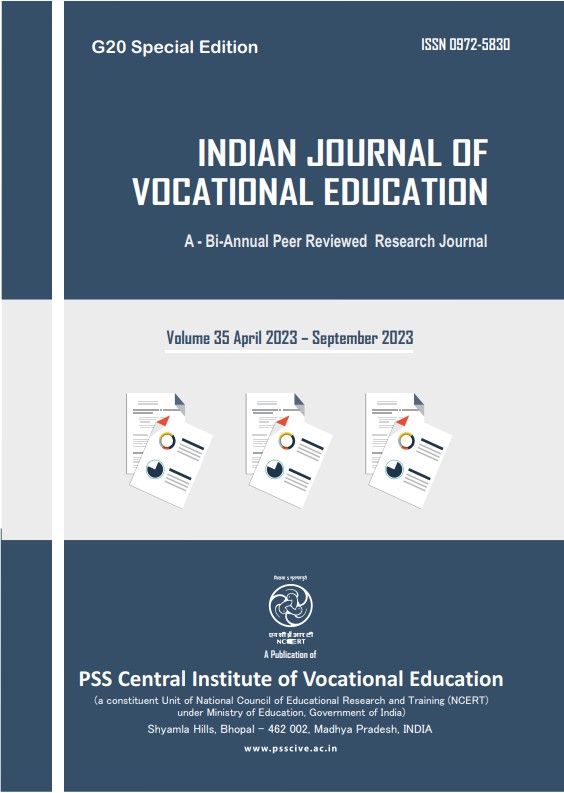Inclusive Vocational Education: Key to Women Empowerment and Sustainable Livelihoods: A Case study of Home Based Zardozi Women Artisans of Bhop
Published 2023-09-30
Keywords
- Inclusive,
- Vocational Education,
- Women,
- Empowerment,
- Sustainable Livelihoods
How to Cite
Abstract
This paper will focused on the role of Vocational Education in women empowerment and also making it more inclusive especially for home based women artisans. VET is critical for economic growth and social development. However for reaping its full benefits it needs to be more inclusive. Studies on Artisans in India range through a variety of perspectives and disciplines, such as Development-oriented studies, Surveys, Sociological studies, Anthropological and Ethnographic accounts. But there is a gap in studies on vocational education for inclusion of home based women artisans in the mainstream economy. Also whatever studies have been undertaken contemporary attempt to review the scholarly literature on the status and position of home based women artisans is deeply missing. Thus the present study was undertaken with a view of to find out the factors that would enhance the inclusion of women through vocational education specifically the home based women artisans. Review of literature, observation and case study methods with purposive sampling were used for data collection. The findings revealed that for vocational education to be more inclusive and beneficial it has to address the socio-cultural, economic and personal barriers which limit the extent to which women can reap its benefits.
